11. Crimes of the Future (2022)
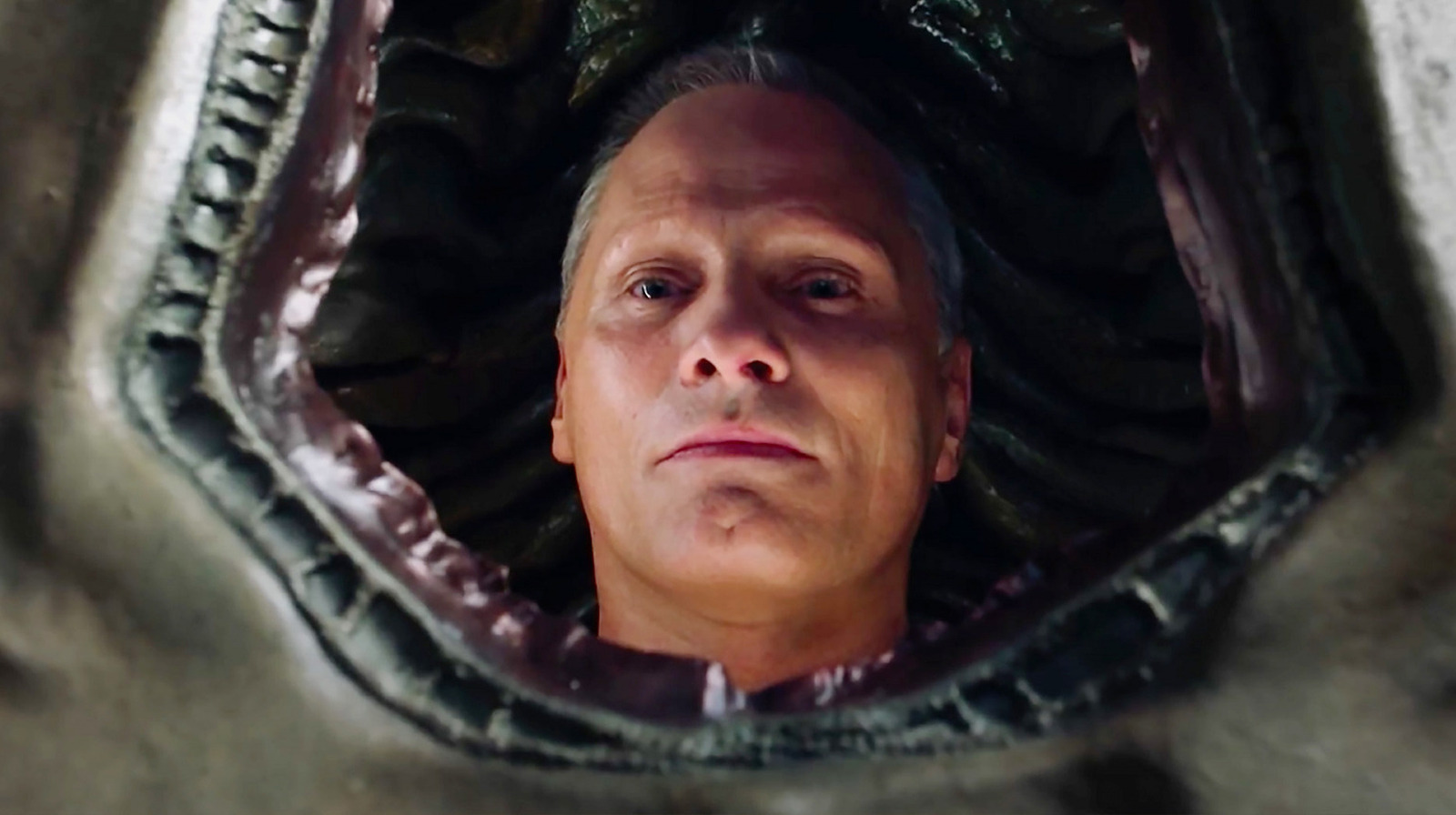
‘Surgery is the new sex’ provides the provocative mantra for Cronenberg’s latest exploration of the human flesh. ‘Crimes of the Future’ imagines a near-future where mankind has no choice but to evolve in order to endure the nightmare-scape it helped create. Biological mutation has paved the way for performance artists like Saul Tenser (Viggo Mortensen) and Caprice (Lea Seydoux) who turn organ deformities into bold acts of self-expression. The human body is all but a blank canvas that can be warped into something new and unique, while surgery becomes a soaring spectacle to be performed in front of a crowded audience.
While not quite the home run that many of us envisioned before its release, ‘Crimes of the Future’ does provide a fitting grand statement that nicely echoes many of Cronenberg’s pet interests. For better or worse, the film plays like a ‘greatest hits’ party of sorts. Perhaps that means it doesn’t break much new ground, but make no mistake — even a mid-tier Cronenberg production runs rings around 99% of Hollywood’s mass-produced schlock.
10. The Dead Zone (1983)
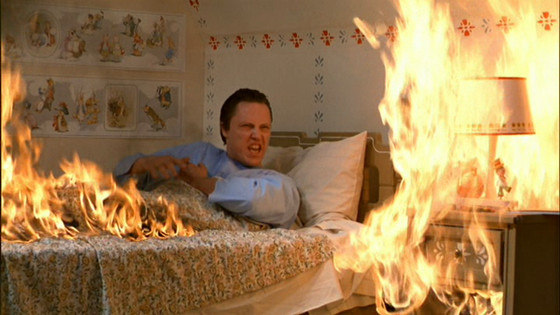
This Stephen King adaptation rests almost entirely upon the proverbial ethical quandary on whether killing baby Hitler would be the right thing to do if given the chance or, in the contrary, that erasing the Nazi leader from history would be ill-advised as it would trigger an unforeseen butterfly effect.
Johnny Smith (Christopher Walken) is forced into a similar conundrum after waking up from a five-year coma with an ability to predict the past, present and future merely by touching people. His clairvoyant powers are presented less as an empowering gift and more like a heavy burden, a curse that will torment him for the rest of his days but that have the power of changing the course of history altogether. Translating King’s prose to the silver screen has yielded uneven results in the past, but fortunately Cronenberg was up to the challenge — removing a lot of unnecessary fluff to turn an otherwise drab novel into an engaging thought piece.
9. The Brood (1979)
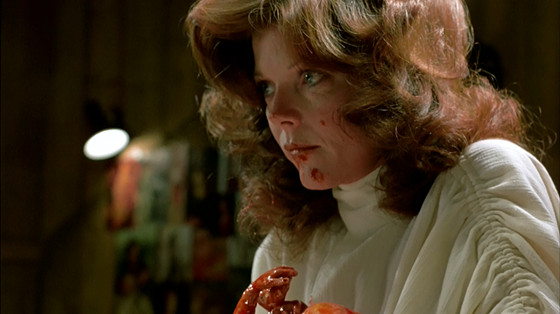
Made in the wake of Cronenberg’s sour divorce from his first wife and subsequent custody battle for her daughter, ‘The Brood’ is rightfully cited as the director’s most personal work to date. His own life certainly bleeds into the film and informs most if not the entirety of the narrative, which puts us in the shoes of Frank, a distraught man caught in a fierce legal dispute of his own. Unable to cope with her emotional turmoil, Nola (Frank’s wife) is institutionalized indefinitely in a shady psychiatric center, where she undergoes a radical treatment that remains shrouded in mystery for the better part of the film.
Cronenberg keeps his cards close to chest until the final act, where we learn that Nola’s repressed rage is being manifested physically through violent doll-like children who carry out her subconscious desires. If ‘Shivers’ marked the arrival of a new trendsetter in the horror genre, ‘The Brood’ solidified the Canadian as a capital-D Director.
8. Scanners (1981)
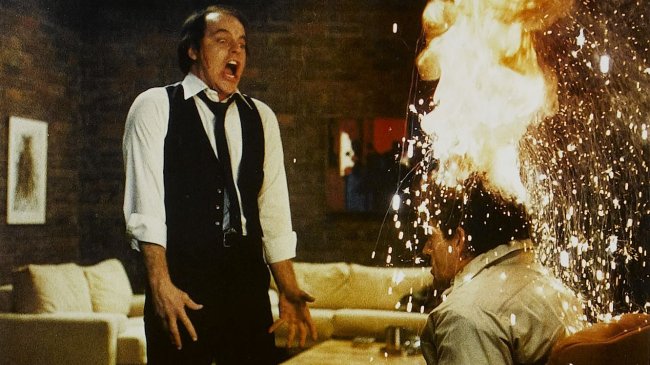
You’d be hard-pressed to find a more memorable scene in Cronenberg’s entire oeuvre than Scanners’ iconic head-exploding sequence. It speaks volumes of Cronenberg’s craft that he’s consistently managed to create startling imagery that to this day feels equal parts realistic and otherworldly. Much of the timeless quality that defines his early output springs from the way he pushed the envelope of practical effects in film to maximize the shock value of his stories.
‘Scanners’ remains etched into our collective consciousness in no small part for the aforementioned scene. But beyond its blood-spurting, mind-blowing bravado sequences, the film provides an exciting treatise on telekinesis, Big Pharma and Uncle Sam all wrapped in a knotty conspiracy thriller that would make Alan Pakula blush. Stephen Lack’s wooden acting may bring the film down a notch or two, but its best moments are too great to be neutralized by some rough patches.
7. Naked Lunch (1991)
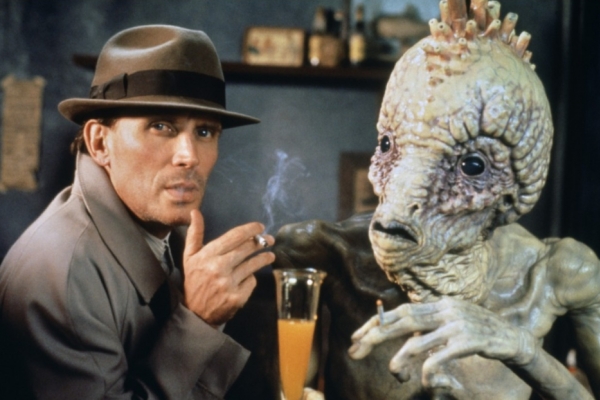
Hallucinatory pest poisons, talking bug typewriters, doppelgänger wives… Leave it to David Cronenberg to channel every eccentric trait and insane visual style and crank them all up to eleven to faithfully adapt William S. Burroughs’s once-thought-unfilmable novel. Any viewer who has already sat through the entirety of ‘Naked Lunch’ will agree that trying to devise a semi-coherent synopsis is something of a fool’s errand. In a nutshell, this is the type of film that is best approached leaving all rational reasoning out the door, letting it wash over you as you stare in disbelief that such oddity exists in the first place.
‘Naked Lunch’ wears many skins and allows for different readings but trying to follow the story at face value is an easy way to miss all the fun in between. In fact, it isn’t hard to imagine Cronenberg having a quiet chuckle beneath it all.
6. A History of Violence (2005)
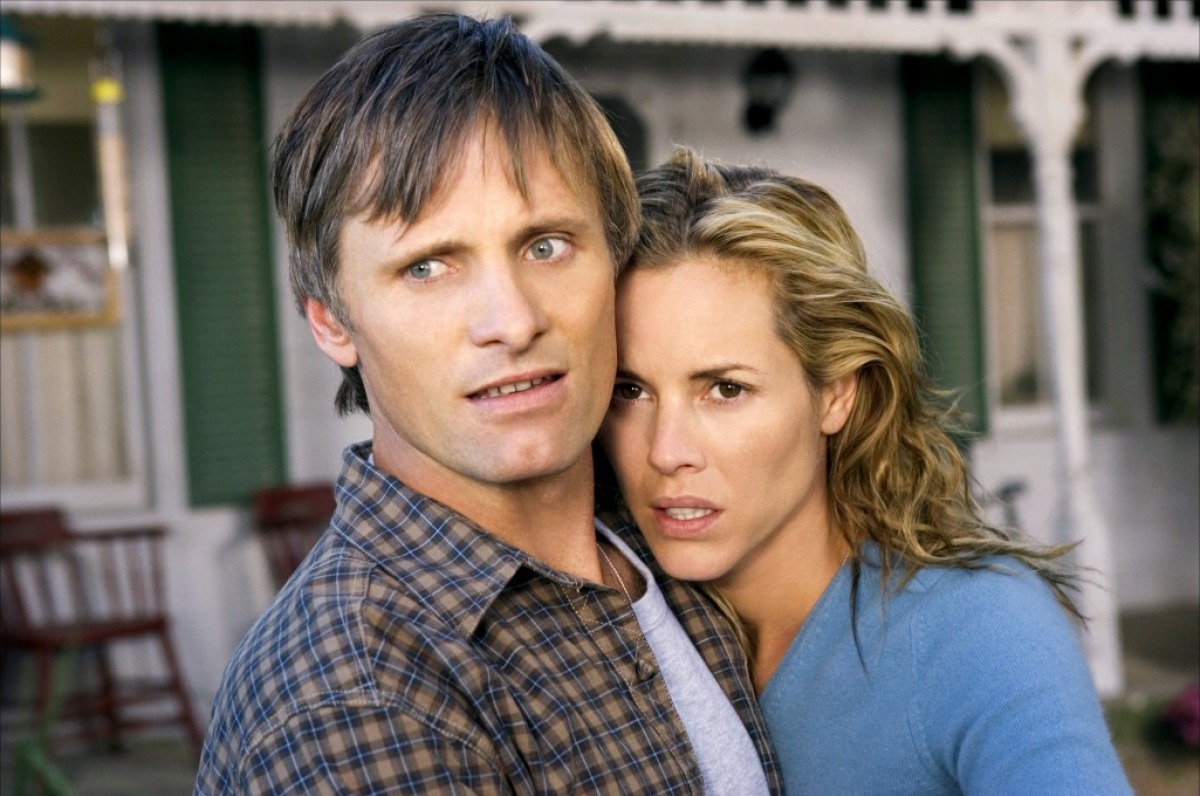
The first of many collaborations between Cronenberg and Viggo Mortensen is yet to be toppled. Based on a graphic novel of the same name, ‘A History of Violence’ puts us in the shoes of Tom Stall, a seemingly stand-up citizen who sees his idyllic suburban life turn upside down after he foils a violent robbery in his diner. Following his heroic act of self-defense, Tom finds himself at the center of a national media frenzy, and soon sees his turbulent past come back to bite him.
‘A History of Violence’ uses the benign backdrop of a small Midwestern town as a conduit to explore the seedy underbelly lurking round the corner; suggesting that, perhaps, our facade of complacency is, after all, nothing more than that. Though it is Cronenberg’s most straightforward story by a long shot, it’s not one ounce less thought-provoking than the rest of his recognizable titles.
5. eXistenZ (1999)
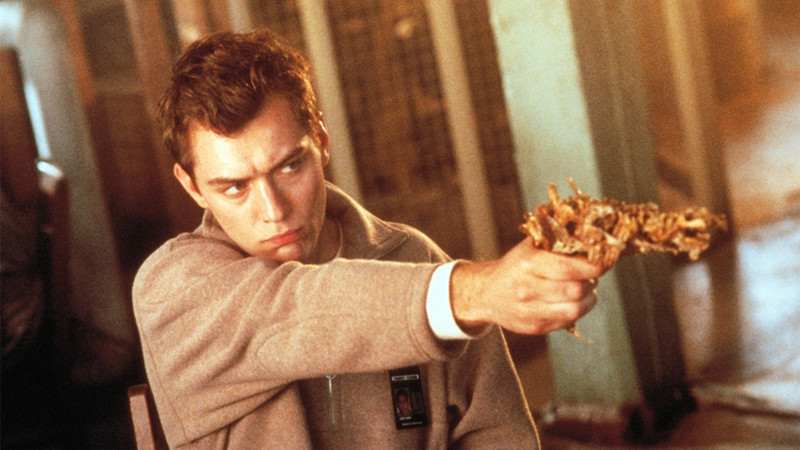
David Cronenberg has always shown interest in towing the lines between reality and fabricated illusion — often blurring them altogether — so navigating the multilayered world of videogames at the dawn of the internet age seemed to align with his common concerns. The director greeted this period of unprecedented interconnectivity and artificiality with cautious skepticism, conjuring up a labyrinthine puzzle of a film that seems to deliberately forego any semblance of a straitlaced narrative — replicating quite faithfully the disorienting nature of virtual reality.
The film’s title refers to a brand-new immersive game that can be accessed by plugging a hybrid umbilical cord to your spine, thrusting its users into a game within a game that can render anything beyond your wildest imagination (most memorably a flesh gun that shoots teeth bullets). The film is often goofy, nauseating and excessively convoluted — but that might just be the whole point of it after all.
4. Dead Ringers (1988)
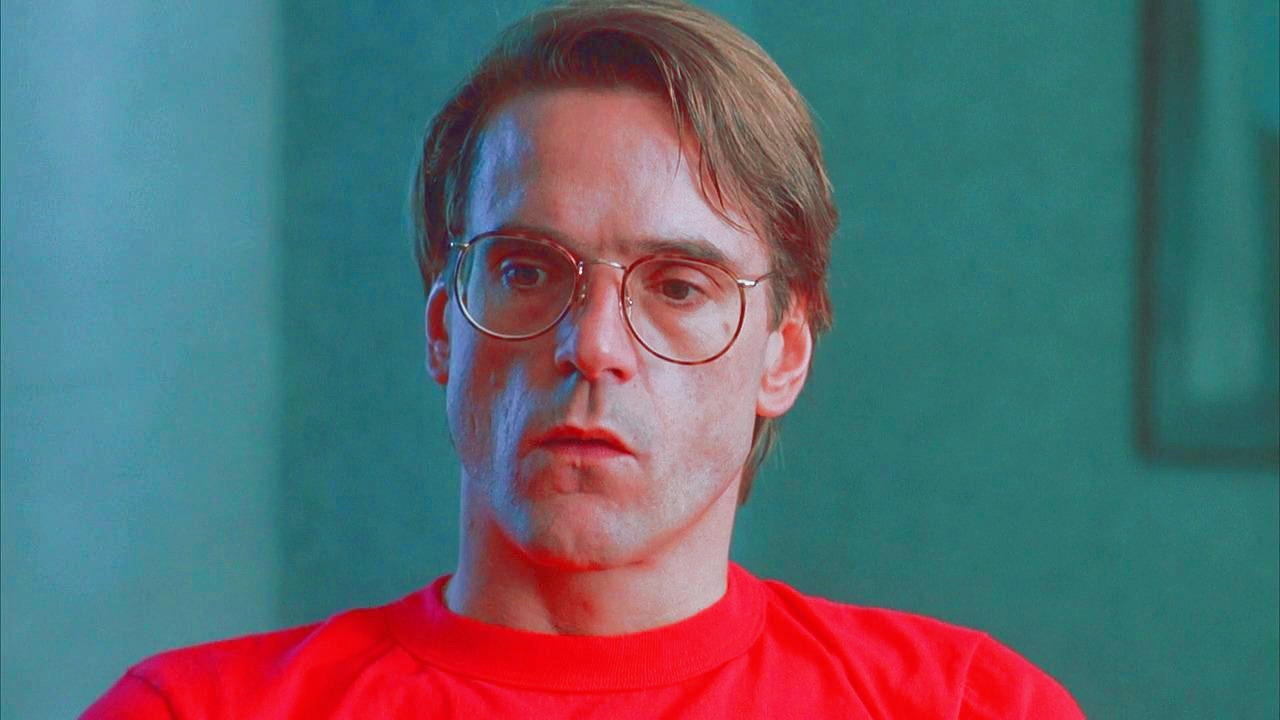
Bolstered by a commanding double-duty performance by Jeremy Irons, ‘Dead Ringers’ plumbs and deepens Cronenberg’s fixation with the inner self, psychosexual impulses and the duality of men through the exploits of Elliot and Beverly, a set of identical twin gynecologists who see their symbiotic relationship disrupted by an outside presence.
Though ostensibly more grounded in reality than most of Cronenberg’s dystopian brain-melters, there’s more than meets the eye with these two fertility doctors; who never think twice before swapping patients and love interests. Cronenberg goes out of his way to fully develop their conflicting personalities — which is further emphasized by Irons’ transformative acting — fleshing each brother out so that we have a sense of their delicate, fractured existence. ‘Dead Ringers’ refuses to parlay into a set definition of horror but nevertheless conceals plenty of disturbing moments that are guaranteed to lodge in your memory banks.
3. The Fly (1986)
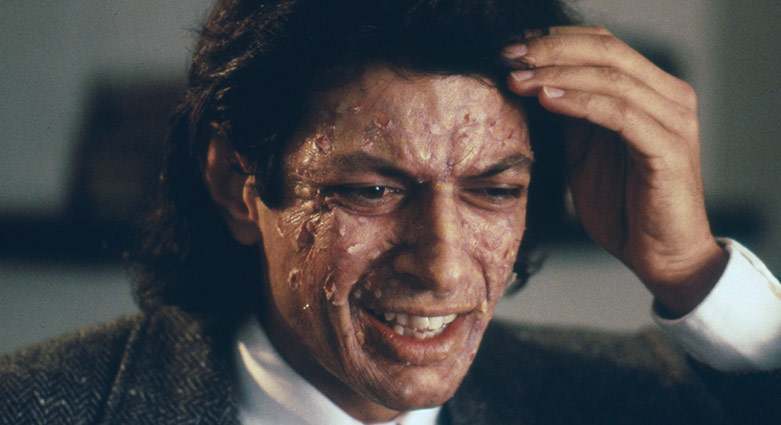
The body horror to end all body horrors. After years of slowly building his reputation through midnight movie circuits, the secret was finally out in the open — David Cronenberg was here to stay and was about to redefine the genre forever. Along with John Carpenter’s ‘The Thing’, his remake of Vincent Price’s 1958 monster flick set the gold standard for practical effects and instantly catapulted him into the mainstream.
Thirty-six years later, ‘The Fly’ feels as gnarly, sexy and revealing as ever. Equal parts a cautionary tale of the folly of playing God with science and a harrowing meditation on mortality, the film centers around an eccentric scientist who falls victim to his own success after inadvertently having his DNA spliced with a housefly while testing his revolutionary teleportation device. Witnessing his body gradually decompose and mutate into a hideous hybrid between man and insect is sickening yet boundlessly fascinating from a scientific standpoint. On account of its brilliantly simple premise, ‘The Fly’ makes for an ideal entry point for those eager to dive into the director’s work and a must-watch to any veteran fan worth his salt.
2. Crash (1996)
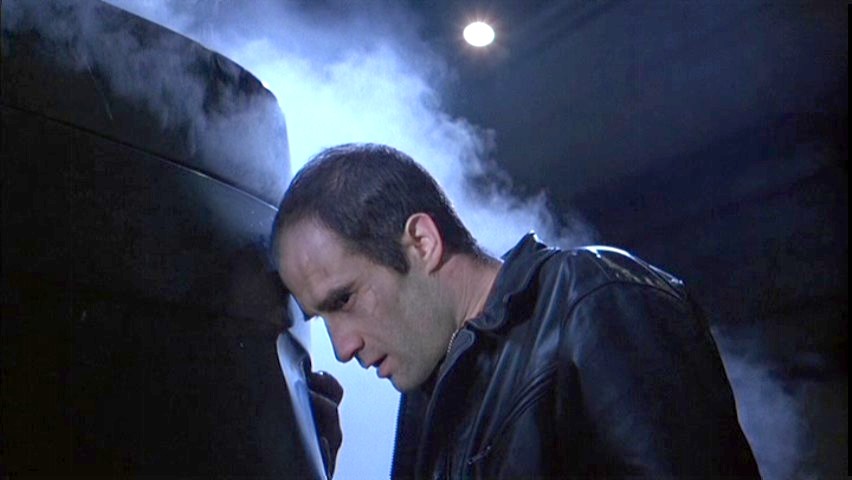
At the turn of the millennium, exploding heads and stomach vaginal slits weren’t cutting it anymore for a large portion of moviegoers who’d grown so emotionally numb to graphic violence that Cronenberg himself had no choice but to up the ante to avoid growing stale. Enter ‘Crash’, perhaps his most challenging yet courageous creation, a collision of dismemberment and sexual perversion that shows the irrational limits to which we’ll go to scratch our itches.
Met with controversy upon its Cannes premiere, the film thrusts into the kinky underworld of car-crash fetishists who can only find arousal by flirting with death at hundreds of miles per hour. Cronenberg dissects the self-destructive erotic rituals of these damaged individuals with detached fascination; revealing a hint of joylessness behind their morbid ecstasies. In a mad world of hyper technological development where the lines between man and machine blur together, anything from steering wheels, rear windows, windshields or hand brakes can become the ultimate turn-ons.
1. Videodrome (1983)
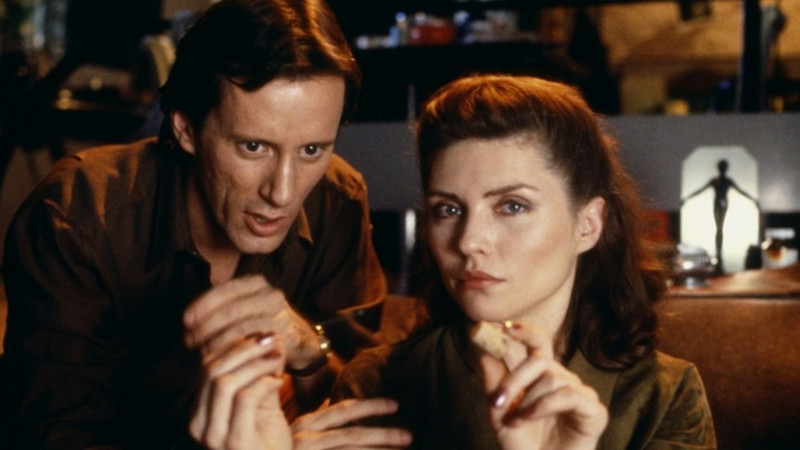
Long live the new flesh!
Though any of the previous entries have a strong case of claiming the top spot, it’s hard to look past ‘Videodrome’ as the crowning achievement of Cronenberg’s career not to mention his most prescient prophecy. The film envisions a world full of digital junkies glued to their screens who are being brainwashed on the daily, and where any semblance of self-identity has been erased in an endless stream of media consumption. Morbid curiosity gets the better of Max Renn, the sleazy head of a late-night TV channel who, in a desperate search for extreme content, stumbles upon a hyperviolent torture show of unknown origins.
As an indictment on the potential evils of mass media, ‘Videodrome’ feels several decades ahead of its time. Cronenberg’s verdict rings truer with every passing year, with our obsession and dependence on schlock entertainment and technology having multiplied many-fold. How long until we allow our imaginations to run as far as to lose touch with reality for good?